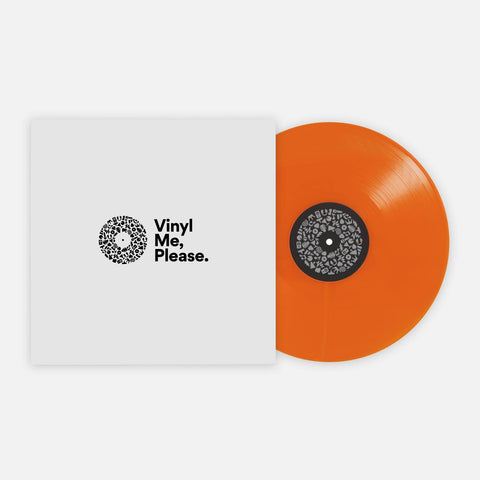There is an absurdly vast selection of music movies and documentaries available on Netflix, Hulu, HBO Go, and on and on and on. But it’s hard to tell which ones are actually worth your 100 minutes. Watch the Tunes will help you pick what music doc is worth your time every weekend. This week’s edition covers Charli XCX: The F-Word and Me, which is streaming over on YouTube.
British pop star Charli XCX is sprawled on a white comforter, the same as mine, in a kitschy bedroom, just like the one I’d grown up in, providing live commentary over Britney Spears’ iconic “Hit Me Baby One More Time” music video, just I had done over 100 times throughout my life. As much as I wish more than anything I was describing a casual girls night with my BFF Charli, this was in a scene from Charli XCX: The F-Word and Me, a 40-minute BBCThree production that was released in the fall of 2015. It explores her experiences as a pop star, other women in the industry’s experiences and generally, feminism and pop music. Along the way she chats with people in the biz like, Jack Antonoff, Ryn Weaver and Marina Diamandis about their own thoughts and personal experiences. And although it wasn’t all-encompassing by any means, it opened up some conversations worth having.
Back to Britney. “I wanted to dress like Britney Spears when I was younger. I just wanted to have those sparkly, pink hair-ties, like the school uniform, everything,” Charli XCX swooned. Despite being just four years old when I first saw the “Hit Me Baby One More Time” video, I remember feeling the exact same way; I would have given anything in my tiny power to be Britney. And that’s a common experience for a lot of young girls. Charli XCX seemed to have a hyper awareness of the impact pop stars have and the idolization they provoke. “Young kids now are being blasted with what feminism is because Beyoncé is standing in front of a massive screen that says “Feminism” on it. And that’s great, because when I was younger I wasn’t conscious of that at all, I was just like ‘Yeah! Britney!’” Sure, do other lesser-known artists provide more nuanced, complex versions of feminism? Probably. But do they have the reach and power of a top-of-the-charts pop icon, especially in the valuable eyes of young girls in extremely formative states? Probably not.
Of course, there’s immense room for critique. When you hear the words pop music and feminism together, a small alarm may sound off in your head, and rightfully so. As near and dear and pop music is to a lot of us, in a lot of ways, it’s undeniably commercially driven. There isn’t anything wrong with that, necessarily. It just means that the any ideological assertions are, in many cases, simplified and commercialized for easy commodification. This isn’t exclusive to pop music as a genre at all, but that’s where it’s often most palpable. Complex, dynamic, intersectional issues like feminism are often watered down and commodified into an aesthetic that often isn’t inclusive to everyone that feminism attempts to serve in the first place.
This exclusivity and simplicity holds true in certain aspects of The F-Word and Me. The documentary’s interview roster was relatively short and overwhelmingly white. It brings up important issues and personal narratives, but often just barely grazes the surface. But, for a documentary that doesn’t necessarily claim to be comprehensive, and with that in mind while you view it, I think this documentary is a worthy watch, even if you don’t happen to be a pop music aficionado. Like it or not, pop music reaches insurmountable masses of people, and what happens in the industry is worth examining.
Without being outright, it’s also an interesting look into the dichotomy of feminism’s existence as it increasingly becomes a marketing tool. It’s eye-opening and terrifying to see that these artists and professionals in an industry that bleeds “Capital-F Feminism™” were experiencing the same small day-to-day shit that me and so many women I know face, regardless of their field. Beyoncé may be preaching feminism, but is enough to enact change even within the industry she’s a part of? CharliXCX acknowledges the positive merits of the rise of feminism into highly mainstream pop culture, while pointing out there are still women in the industry without the same visibility as people like Beyoncé that are being treated as inferiors, underestimated and robbed of their ability to make their own decisions. That isn’t to write off progress, but to ask for a careful examination of its extent. At the exact same time that the word feminist flows constantly through the mouth of pop culture, her drummer describes being asked if she’s “dating someone in the band” long before she’s asked if she’s in the band.
There aren’t any definitive answers in CharliXCX’s documentary, but it didn’t set out to provide any. As she closes the documentary she explains “I’m starting to see why it’s so important to keep asking questions.” And in the constant, active pursuit to ask the questions that lead to changes, however small, this documentary is a pretty good place to find some.
Amileah Sutliff is a New York-based writer, editor and creative producer and an editor of the book The Best Record Stores in the United States.
Join the Club!
Join Now, Starting at $36Pages




